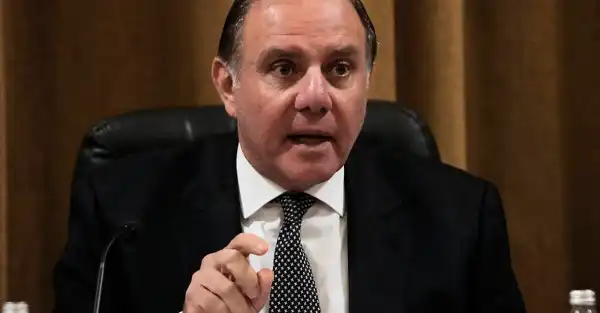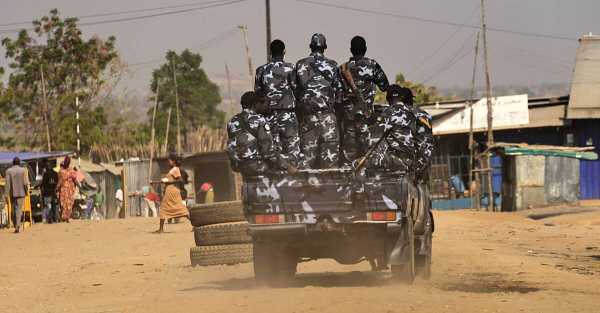The committee has interviewed more than 1,000 people so far, and the transcripts could be used as evidence in potential criminal cases or to pursue new leads.
-
Send any friend a story
As a subscriber, you have “>10 gift articles to give each month. Anyone can read what you share.
Give this articleGive articleGive this storyGift this article
- +
- Read in app

The move comes amid signs that Attorney General Merrick B. Garland is accelerating the pace of his investigation into the Capitol attack.
WASHINGTON — The Justice Department has asked the House committee investigating the Jan. 6 attack for transcripts of interviews it is conducting, which have included discussions with associates of former President Donald J. Trump, according to people with knowledge of the situation.
The move, coming as Attorney General Merrick B. Garland appears to be ramping up the pace of his painstaking investigation into the Capitol riot, is the clearest sign yet of a wide-ranging inquiry at the Justice Department.
The House committee has interviewed more than 1,000 people so far, and the transcripts could be used as evidence in potential criminal cases, to pursue new leads or as a baseline text for new interviews conducted by federal law enforcement officials.
Aides to Representative Bennie Thompson, Democrat of Mississippi and the chairman of the committee, have yet to reach a final agreement with the Justice Department on what will be turned over, according to a person with knowledge of the matter who spoke on the condition of anonymity because of the confidential nature of the investigations.
On April 20, Kenneth A. Polite Jr., the assistant attorney general for the criminal division, and Matthew M. Graves, the U.S. attorney for the District of Columbia, wrote to Timothy J. Heaphy, the lead investigator for the House panel, advising him that some committee interviews “may contain information relevant to a criminal investigation we are conducting.”
Mr. Polite and Mr. Graves did not indicate the number of transcripts they were requesting or whether any interviews were of particular interest. In their letter, they made a broad request, asking that the panel “provide to us transcripts of these interviews, and of any additional interviews you conduct in the future.”
Spokesmen for the Justice Department and the House committee declined to comment.
The Justice Department’s investigation has been operating on a separate track from the committee’s work. Generally, investigators working on the two inquiries have not been sharing information, except for at times communicating to ensure that a witness is not scheduled to appear before different investigators at the same time, according to a person with knowledge of the inquiries.
Thus far, the Justice Department’s investigation has focused more on lower-level activists who stormed the Capitol than on the planners of the attack. But in recent weeks, Mr. Garland has bolstered the core team tasked with handling the most sensitive and politically combustible elements of the inquiry.
Several months ago, the department quietly detailed a veteran federal prosecutor from Maryland, Thomas Windom, to the department’s headquarters. He is overseeing the politically fraught question of whether a case can be made related to other efforts to overturn the election, aside from the storming of the Capitol. That task could move the investigation closer to Mr. Trump and his inner circle.
A subpoena reviewed by The New York Times indicates that the Justice Department is exploring the actions taken by rally planners.
Prosecutors have begun asking for records about people who organized or spoke at several pro-Trump rallies after the 2020 election as well as anyone who provided security at those events, and about those who were deemed to be “V.I.P. attendees.”
They are also seeking information about any members of the executive and legislative branches who may have taken part in planning or executing the rallies, or tried to “obstruct, influence, impede or delay” the certification of the election, as the subpoena put it.
The Justice Department’s request for transcripts underscores how much ground the House committee has covered, and the unusual nature of a situation where a well-staffed congressional investigation has obtained testimony from key witnesses before a grand jury investigation.
The House committee, made up of seven Democrats and two Republicans, is led by Mr. Thompson and Representative Liz Cheney of Wyoming, one of only two House Republicans to embrace an inquiry scrutinizing the actions of their own party. The panel has about 45 employees, including more than a dozen former federal prosecutors and two former U.S. attorneys, and is spending more than $1.6 million per quarter on its work.
The committee has obtained documents and testimony from a wide range of witnesses, including more than a dozen Trump White House officials, rally planners and some of the rioters themselves. Those witnesses have included White House lawyers; Justice Department officials; security officers; members of the National Guard; staff members close to Vice President Mike Pence; members of Mr. Trump’s personal legal team; Republicans who participated in a scheme to put forward pro-Trump electors from states won by Joseph R. Biden Jr.; Mr. Trump’s own family members; and the leaders of right-wing militia groups.
At least 16 Trump allies have signaled they will not fully cooperate with the committee. Faced with such resistance, investigators on the panel have taken a page out of organized crime prosecutions and have quietly turned at least six lower-level Trump administration staff members into witnesses who have provided information about their bosses’ activities.
Some of those witnesses — including an aide to Mark Meadows, the former White House chief of staff — have provided critical information.
The committee also has tried to obtain testimony from Republican members of Congress, and it issued subpoenas to five lawmakers last week. Those members have denigrated the panel’s work but have declined to say whether they would participate in the interviews, which are scheduled for the end of May. One of the lawmakers, Representative Jim Jordan of Ohio, said he received his subpoena on Monday and was reviewing it.
Mr. Garland and his top aides have been careful about not disclosing their investigative methods, and they have sought to emphasize their impartiality in limited public comments about the investigation.
“We investigate conduct and crimes, not people or viewpoints,” the deputy attorney general, Lisa O. Monaco, said last week during an interview at the University of Chicago.
“We follow the evidence,” she added. “It is very important to do that methodically.”
Source: nytimes.com



